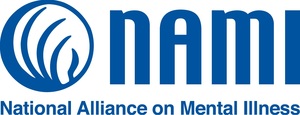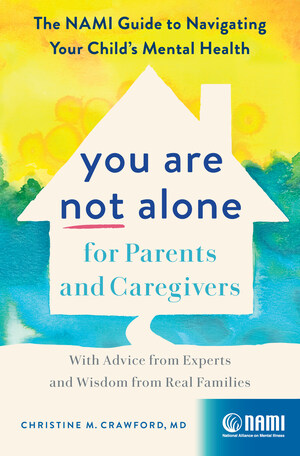ARLINGTON, Va., Oct. 2, 2014 /PRNewswire-USNewswire/ -- Mental Illness Awareness Week (MIAW) is Oct. 5-11. What do you have planned?
MIAW is a time for education about mental illness such as depression, bipolar disorder, schizophrenia and other medical conditions that affect a person's thinking, feelings moods, ability to relate to others and daily functioning.
MIAW includes National Depression Screening Day (Oct. 9.) and World Mental Health Day (Oct. 10) During MIAW everyone should learn symptoms of mental illness and where to find help in case it is needed. It is also a time when community leaders should learn the facts about mental illness for public dialogue about mental health care.
When an individual or family has a mental health concern, they should discuss it with their doctor, who may refer them to a mental health professional. Information is available from the National Alliance on Mental Illness (NAMI) at www.nami.org or its HelpLine at 1-800-950-6264. NAMI also provides free education classes and support groups.
NAMI's website provides detailed information about the full range of mental illness diagnoses. Symptoms of depression, bipolar disorder and schizophrenia specifically are listed below.
In many cases, the conditions have co-occurring substance abuse problems.
- Changes in sleep
- Changes in appetite. A person may experience a decrease in appetite and noticeable weight loss. Others may eat more, sometimes resulting in weight gain
- Poor concentration or ability to make decisions
- Loss of energy
- Lack of interest in usual activities.
- Low self-esteem; dwelling on losses or failures
- Feelings of hopelessness or guilt—including thoughts of suicide
Bipolar disorder involves alternating, recurring cycles of depression (lows) and mania (highs).During a low cycle, symptoms mirror depression (above). Symptoms of manias include:
- Anxiety
- Difficulties with sleep
- High level of energy and activity
- Hypersensitivity
- Irritability
- Intense imagination
- Risk-taking; often with poor judgment
Schizophrenia involves a combination of symptoms falling into three categories: positive, negative and cognitive.
Positive Symptoms, also known as "psychotic symptoms," involve a loss of contact with reality. Negative systems "take away" a person's usual ways of interacting with other people. Cognitive symptoms affect thinking, reasoning, memory and perception.
Positive Symptoms
- Delusions—a person believes ideas that are clearly false (e.g. people are reading their thoughts)
- Hallucinations—images or voices that others cannot see or hear
Negative Symptoms
- Emotional flatness
- Inability to start or follow through with activities
- Lack of content in speech
- Inability to experience pleasure
Cognitive Symptoms
- Difficulty in organizing thoughts
- Difficulty in remembering
- Inability to recognize their illness (anosognosia)
NAMI thanks Forest Laboratories, LLC, a subsidiary of Actavis, for being the National Sponsor of Mental Illness Awareness Week.
NAMI
NAMI is the nation's largest grassroots mental health organization dedicated to building better lives for the millions of Americans affected by mental illness.
www.nami.org
Twitter.com/namicommunicate
Facebook.com/officialNAMI
LOGO - http://photos.prnewswire.com/prnh/20100216/NAMILOGO
SOURCE National Alliance on Mental Illness
WANT YOUR COMPANY'S NEWS FEATURED ON PRNEWSWIRE.COM?
Newsrooms &
Influencers
Digital Media
Outlets
Journalists
Opted In






Share this article